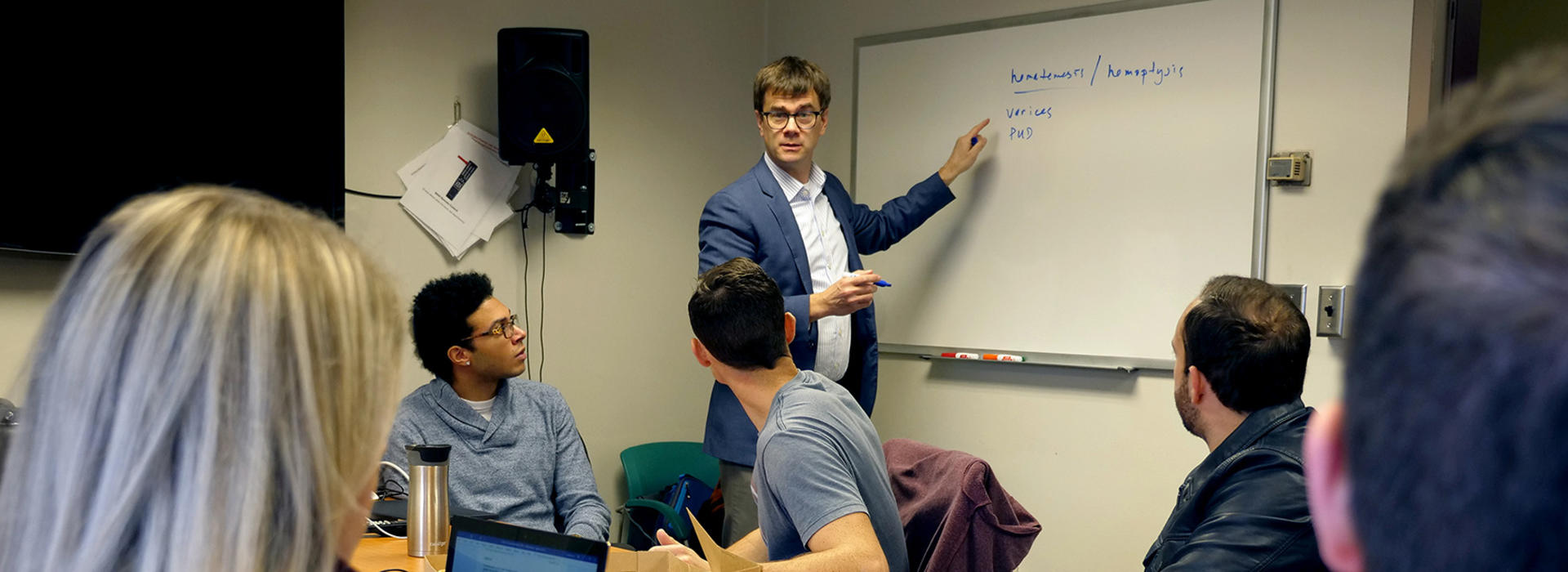
Medical School Professor Encourages Faculty to Give Back
David Hilden, MD, MPH, FACP, started his medical education in a kitchen. His original pursuit as an electrical engineer no longer satisfied him, and after encouragement from his wife to “try that medicine thing,” Dr. Hilden, at age 30, converted their cooking space into his personal laboratory.
“I applied to the U of M Medical School and was fortunately accepted. I had to take a few years of prerequisite courses,” he said. “This was before the internet, so I would do dissections at the kitchen table and mail in my findings.”
Today, Dr. Hilden (and probably his wife) prefer to keep medicine out of the kitchen. He, instead, practices at Hennepin County Medical Center where he leads as the vice president of Medical Affairs for Hennepin Healthcare. But, he holds another title—associate professor of medicine at the Medical School—where he helps medical students find use in patient stories.
“Currently, I am teaching Foundations of Clinical Thinking, which is a small, two-year learning group model for first-year medical students,” Dr. Hilden said. “We learn how to think like a doctor because it is a skill set—a language. It is learning how to take what patients offer us in their stories, in their history and in their symptoms and putting it all together in a logical, yet humanistic form. That’s how you think like a doctor.”
Thinking like a doctor, though, is only part of the process in becoming one. That’s why Dr. Hilden says, as a faculty member, he feels a sense of obligation to help his students beyond making them well-rounded thinkers. He wants to ensure they cross the finish line, so he makes an annual donation to student scholarships at the Medical School.
“Medical students will have a rewarding career; they get to be a doctor,” he said. “But, it is a large sacrifice. You basically give up your 20s, and your whole decade is consumed by your education, extremely long hours and the expectation to be smart and kind, to tell someone they are dying and to also be a functioning member of society—all while finding yourself as an adult and possibly building a family.”
It’s a sacrifice Dr. Hilden says more prospective students would be willing to make if only they could afford it. His support of scholarships, he hopes, is connecting anyone who has a passion to care for others with the opportunity for a career in medicine.
“We need the physician workforce to look like the community they serve, and finances are getting in the way of this,” he said.
With Give to the Max Day approaching, Dr. Hilden encourages his faculty colleagues to provide even greater support to medical students by donating to scholarships.
“Remember the students in front of you, who don’t have time for a job, are failing to make an income. We don’t think about that enough,” he said. “We are obligated to teach them, be good role models and help with their professional development. But, we have the opportunity by supporting scholarships to create a workforce that is competent and diverse. A relatively modest, meaningful gift from us can really go a long way for a medical student."
Make your donation of any amount during Give to the Max Day on Nov. 14. This year, the Medical School is asking for support of the Future Physicians Scholarship at the Twin Cities campus and the Next Generation Fund at the Duluth campus.